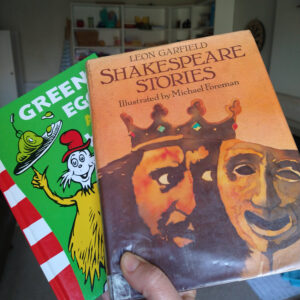In this piece for Film Threat, I muse on whether or not a sequel to the 1985 film The Goonies could even work. Has the world changed too much? Is it possible (or smart) to bring back the original cast? And do today’s kids even act like those from 40 years ago?
“Goonies 2 Won’t Work . . . Unless”
Published in Film Threat on February 17, 2025.
Warner Brothers has announced that the The Goonies will be getting a sequel four decades after its release. (https://variety.com/2025/film/news/goonies-2-sequel-steven-spielberg-1236308226/) Some of the original team is back, such as producers Stephen Speilberg and Chris Columbus, but writer Potsy Ponciroli has the thankless — and likely impossible — task of trying to figure out a story that makes sense. But this sequel won’t work unless the filmmakers can solve a few fundamental problems.
First, who should even be in the film? Fans might enjoy a nice handful of memberberries if beloved cast members like Sean Astin and Martha Plimpton come back, but with the exceptions of Josh Brolin and Ke Huy Quan, actors at the wrong end of middle age will have a hard time delivering satisfying action scenes. Oh, and filmmakers will have to decide if it’s worth the headaches that will come with even thinking about hiring Corey Feldman.
But maybe the original cast shouldn’t star in this film. After all, The Goonies was a story about kids — kids who did really stupid things that grown-ups would never do. The Goonies were immature, messy, rude, and whiny. Their “never say die” was ironic because every choice they made increased to probability of winning a Darwin Award. But their stupidity was endearing because it was so believable. Each Goonie was a giant dweeb in some way, which was reassuring to the children who first saw them. If they can come out on top, they thought, then I have a chance too.
But if Warner Brothers decides to make Goonies: The Next Generation, a problem they will have is that American childhood has changed. Kids are not allowed to be that obnoxious anymore, at least offline. They certainly wouldn’t make Chunk do the Truffle Shuffle — that kind of fat shaming isn’t allowed, and given modern health statistics, most of the kids would likely resemble him to begin with. But the bigger problem is that kids aren’t allowed to run around by themselves anymore.
Only those who graduated high school before the year 2000 know what it’s like to leave the house and be truly unreachable. Pay phones existed, sure, and some kids had beepers or phone cards, but for the most part when kids left the house, their parents had no way of finding them until they came back home again.
The plots of great kid films of the ‘80s like E.T., Flight of the Navigator, Explorers, and The Goonies simply wouldn’t work unless children live in a culture where they are allowed to go outside unsupervised and roam around with nary an adult in sight. That culture is long gone, replaced by an anxiety-inducing obsession with safety and supervision. Children now stay locked indoors with glowing screens, shepherded by grownups at all times. They are no longer allowed to walk to a friend’s house alone or do some shopping at a corner store without the risk of their parents being reported to the police in some places. Modern-day Goonies wouldn’t venture into a cave — they’d be too afraid of losing cell phone signal.
Even the film’s setting has changed. Astoria, Oregon is still beautiful and atmospheric with its pastel houses clinging to misty cliffs, but it’s no longer a struggling working class community. Troy’s dad won. Astoria is now a wealthy enclave populated with the kind of people who put “In This House We Believe” signs on their perfectly manicured lawns and give their children names like “Ariadne” and “Holden.” Being at the bottom of the social ladder was what drove the original Goonies to seek riches in the first place so that they could help their parents avoid being priced out of their own neighborhood. Overpriced housing and financial insecurity is something that adults can still relate to these days, but modern-day middle-aged Goonies would be more likely to get involved in crypto rather than spelunking if they came up with an insane get-rich-quick scheme.
It’s not that Goonies 2 can’t work. It’s just that it won’t work unless Warner Brothers chooses the right characters and premise for the story. A lot of problems could be avoided by making the film a historical piece, set just a few years after the original. This would allow a setting in which there are no cell phones offering characters a lifeline, and children are allowed to be feral. However, this would preclude using the original cast for anything other than playing the parents or grandparents of recast Goonies. But if Goonies 2 is truly to be a sequel worth watching, it will only work if the film is focused on a new generation of kids who are obnoxious, immature, irrational — and endearingly familiar.

